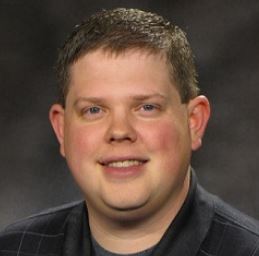Over the last several weeks, we have been trying to follow the apostle Paul through a very difficult series of teachings in Romans chapter nine. In this section, which will go all the way to the end of chapter eleven, Paul is having a conversation with an imaginary person who he has created to represent the Jewish position in the context of the first century. He has done this in the hope of answering what he knows to be Jewish questions in light of his statement in 9:1-5 that most people of the Jewish faith have been cut off from a covenant relationship with God. This raises questions about God’s faithfulness and fairness to Israel that Paul knows need to be addressed. So having done some of that now, as we resume our study in 9:30, we see that that a summary question is being asked. “What then shall we say?” Or another way of putting it would be to say, “What have we learned from what you have said so far?”
Paul’s answer is complex when read, but really is fairly simply once discerned. His answer is that the pagan people, who were not looking for a covenant relationship with God, have suddenly found one, while the Jews, who always were looking to be in a covenant relationship with God, for the most part, have lost it! (9:30-31) You can already here the objection that might come to this claim: “How can this be???”
The answer has everything to do with how each group has approached their relationship with God. When it comes to the pagans, they knew they had no rightful standing before God, and therefore, they received God’s covenant relationship as a free gift of God that had to be received as an act of trust (faith). The Jews however, through a series of mistaken assumptions, had long believed that what made them in covenant relationship with God was their ethnic heritage, along with the law, which gave them distinctive characteristics like circumcision (9:32). In a sense, the Jews had come to think that God “owed” them a covenant relationship. Obviously, they were mistaken.
Paul regrets this mistake. He knows how zealous many of the people of his own ethnic and religious heritage are (10:1-2). However, zealousness is not everything. Paul says that because their zealousness was not according to knowledge, the very thing they thought was the means of their covenant with God — ethnic heritage and the law — had instead become a form of hindrance (9:32). Because they thought that God owed it to them, they could not receive covenant in the only way appropriate — through trust and faith as a free gift of God (10:3).
To sum it up, in 10:4-13, Paul shows how all of this comes together. Under the New Covenant, Christ has both fulfilled and taken the place of the law (10:4). Because this is true, the same things that are true about the old law are now true about him. A person cannot go down to the depths of the sea in order to obtain the law. Neither does a person have to climb to heaven to get it. (10:6-7) Instead, God brings it very near by placing it right in the heart of ever faith-filled person (10:8). This was God’s promise to Israel in their return from captivity (Duet 30), and we see how that promise is fulfilled in Christ himself. The person of God is not one who sees the law, and tries with all their will power to obey it. That person is doomed to failure. The person of God is the one who invites Christ into his heart, thereby allowing a change to be made there which enables one to fulfill the law naturally. It is more than just a change of actions, it is a conversion of the heart out of which all actions flow. That is not to say, of course, that there is nothing for us to do in that process, but that is another article for another time. The main point here is to see how it works; we do not have to search for Christ in the heavens, or plumb the depths of the sea to find him. God will bring him near to us. So near, he is implanted in the heart of the faith-filled person. It is there Christ lives and reigns to overturn our slavery to sin. This is the true essence of “salvation.”
(Don’t forget to join me for A Message From the Heart radio program Sunday evening at 8:00pm on KJAK 92.7FM, or streaming live at www.kjak.com) (curtisbaker@hotmail.com)
Write to: P.O. Box 157, Slaton, TX 79364


